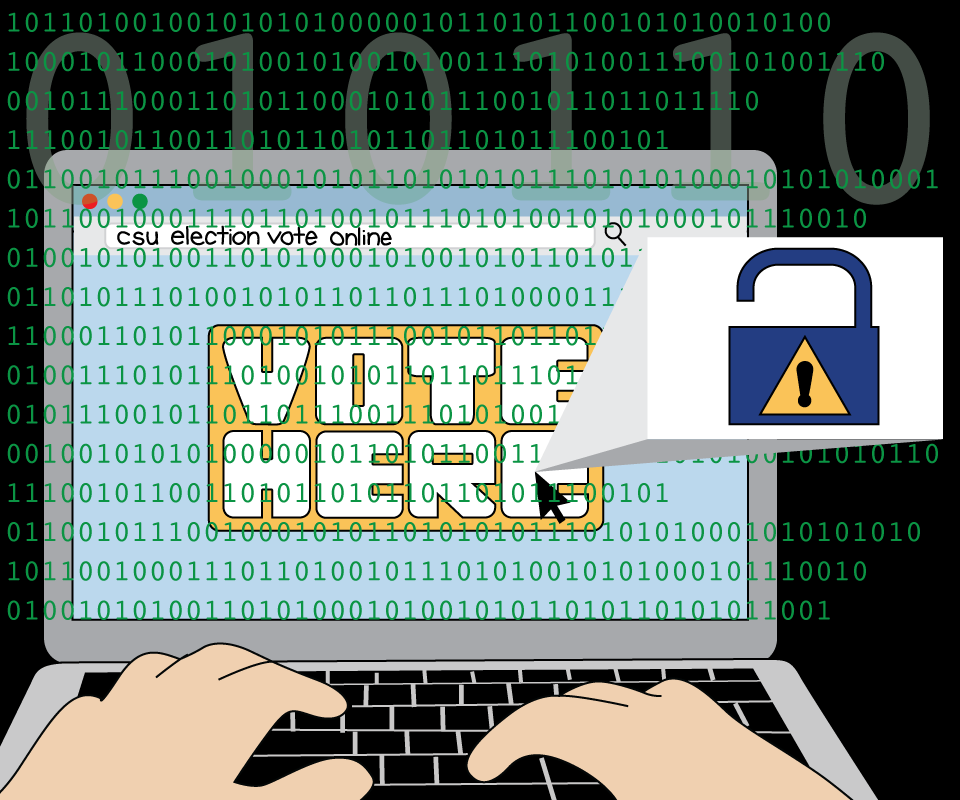CSU General Coordinator criticizes “severe time restraints” of council mandate
The Concordia Student Union’s (CSU) general coordinator has raised concerns about the union’s mandate to implement online voting in its by-elections.
For the first time in history, the CSU will conduct its by-elections entirely through an online service, Simply Voting, after being mandated to do so by council in a meeting on Nov. 28. Students will then vote in a referendum to either permanently adopt the system or return to paper ballots.
Once the motion was approved, the union had just seven weeks to implement the system. “Ideally, I would have liked to have had at least a month to troubleshoot [the system],” CSU General Coordinator Sophie Hough-Martin told The Concordian last Wednesday. “We’re troubleshooting today, tomorrow and Friday, and we have to implement this by Tuesday.”
Hough-Martin’s concerns extend beyond the functioning of the system. “We had to look into the legality of using a third party, whether or not we were even legally allowed to share students’s information with a third-party company because it hadn’t gone to referendum yet,” she said.
Online voting was originally supposed to be voted on in a referendum before being implemented. Then, at the meeting on Nov. 28, council voted to move ahead with the system without a vote from the student body. This is valid according to CSU regulations because rules for paper ballot polling are outlined in the union’s standing regulations, rather than its bylaws.
“The bylaws are binding and can only be overturned by referendum; the standing regulations can be overturned with a two-thirds majority of council,” Hough-Martin said. “What that means is, because paper ballots are only mentioned in the standing regulations, technically council can just override the democratic process we’ve had established from the beginning.”
Hough-Martin had to consult with students at other Canadian universities about changes that might need to be made to the union’s policies. “Our policies are explicitly outlined around having paper ballots and in-person polling, and I needed to make sure that we weren’t implementing a system that would be incompatible with regulations around things like campaigning or polling procedures that we already have in place,” she said.
For example, according to the CSU’s standing regulations, campaign materials may not be displayed near polling stations. “But when everyone’s cell phone becomes a polling booth, how do you monitor that?” Hough-Martin said. “What sanctions would be taken against a candidate who just went around with an iPad and said ‘Hey, did you know that you can vote for me right now?’”
Research into the feasibility of online voting was conducted by the CSU’s ad-hoc Elections and Participation committee. Hough-Martin criticized what she saw as “holes in the research” of the committee, especially regarding election security. “The Elections and Participation committee had not done research into the security and integrity of online voting, which makes this implementation, before any concrete guarantees have been given, a little frustrating for me,” she said.
“I don’t even feel like there’s a need for research on security,” said Arts and Science Councillor Chris Kalafatidis, who led the “Yes” campaign for online voting and sat on the Elections and Participation committee. “Simply Voting is being used by almost half of the universities in Canada, and I can’t find a single article from a student newspaper or from an actual newspaper talking about a hack, with one exception,” he said.
The Elections and Participation committee surveyed 100 universities about their voting practices, 42 of which responded. “Half of the universities that I spoke to are on [Simply Voting], and nobody’s going ‘Oh, this is a big issue,’” he said. “To me, no red flags at all have been raised.”
“Logistically, I think in one month it’s way easier to put on an election that’s outsourced to a third party than to do it all ourselves,” Kalafatidis said.
Kalafatidis is also confident the union will be able to make the necessary changes to the standing regulations before the general elections. “If we could have a package done by early February [or] March, for revisions, I think they could be corrected very quickly.”
Kalafatidis defends the security of online voting compared to paper ballots. “Paper ballots are not secure,” he said. “We didn’t even serialize the paper ballots this election, and had one person not pointed it out, we would have been easily exposed to the potential of ballot box stuffing.”
More than 1,500 institutions across the world use Simply Voting for their elections, including political parties, universities, and unions, according to the company’s website.
“We’re doing our best to make sure the mistake of last semester never happens again, and that the implementation of online voting goes as smoothly as possible given the severe time restraints we were granted,” Hough-Martin said.
Graphic by Ana Bilokin.




